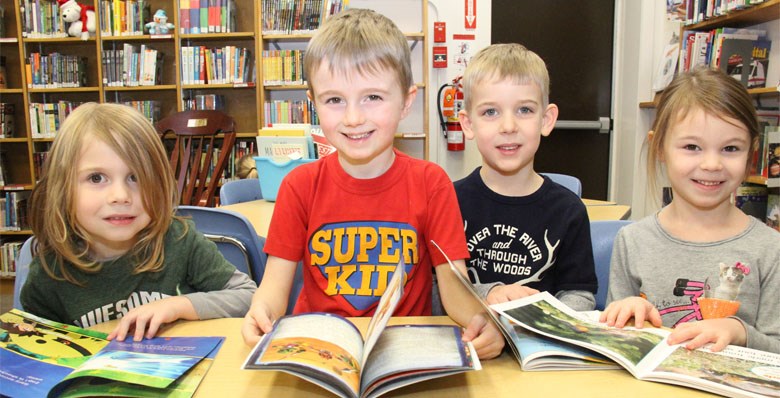Curriculum

"Learning does not end with the ring of a school bell; it occurs in every facet of our lives. We learn every day at school, home, work, and in our community."
Mathematics
The K-12 Manitoba mathematics curriculum is organized by grade and the four strands of Patterns and Relations; Statistics and Probability; Shape and Space; Number. The integration of concepts, skills and procedures is critical to the success of students to achieve the goals of mathematics. Mathematics is about thinking and understanding the relationships between numbers. Numeracy is about applying these skills effectively and confidently in our daily lives.
English Language Arts
The provincial curriculum stresses the integrated nature of the six language arts: listening, speaking, reading, writing, viewing and representing. Effective communication skills allows students to excel in other areas.
Science
In the kindergarten to grade 5 science classroom, students are actively engaged in "doing" science and developing related skills and attitudes, as well as extending their understanding of science concepts. In addition, they make links between science and daily life and appreciate both the power and limitations of science.
Social Studies
Social studies is the study of people in relation to each other and to the world in which they live. In Manitoba, social studies comprises the disciplines of history and geography, draws upon the social sciences, and integrates relevant content from the humanities. As a study of human beings in their physical, social and cultural environments, social studies examines the past and present and looks toward the future. Social studies helps students acquire the skills, knowledge, and values necessary to become active democratic citizens and contributing members of their communities, locally, nationally, and globally.
Exposure French
Exposure French is taught to children in kindergarten to grade 3. Children receive one period of French per six-day cycle, with a focus on oral language.
Basic French
Students in grades 4 to 5 receive four 30-minute periods of French instruction per cycle. Particular emphasis is placed upon the development of communicative competence. Through a wide variety of techniques (games, songs and raps, dialogues, activities, classroom routines, and technology), and by using a gesture approach, students are provided with opportunities for self-expression.
 Ralph Maybank School
Ralph Maybank School 
Please provide your question and email address in the fields below.
Your question has been successfully submitted.
CloseThank you.